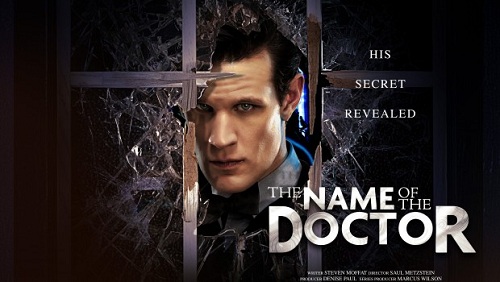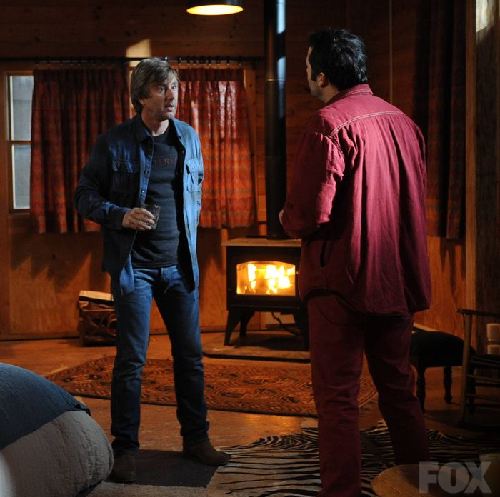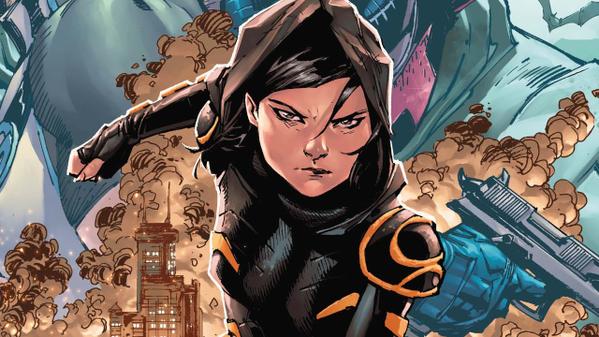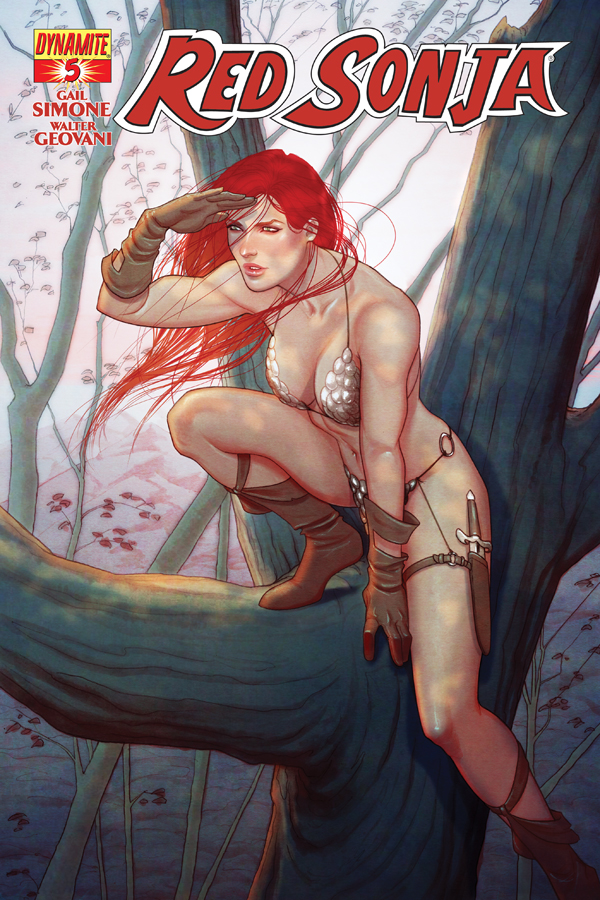Doctor Who, Series 7, Episode 14: “The Name of the Doctor”
Written by Steven Moffat
Directed by Saul Metzstein
Airs Saturdays at 9pm (ET) on BBC America
This week, on Doctor Who: The Paternoster Gang has fun with candles, River says goodbye, and the Doctor comes to Trenzalore
Series 7B of Doctor Who has been markedly uneven. From the delightfully stylized (though troublingly sexual assault-y) “The Crimson Horror” to the beautiful but nonsensical “The Rings of Akhaten”, almost every episode has peppered interesting visuals or premises with frustrating character touches and plot contrivances. It’s no surprise then that “The Name of the Doctor” suffers from this same messiness; every success of the episode is at the same time a failure because showrunner and writer of this episode Steven Moffat doesn’t follow through creatively with his ideas- they’re satisfying on a surface level, but instantly fall apart upon further reflection.
A prime example of this is Clara and the answer we get this week about her. It’s a clever, creative solution and one that allows a very fun (though technically unimpressive) series of cameos from the previous Doctors. However the logistics of it don’t make any sense. We see the Great Intelligence instantly reach into the Doctor’s past and interfere- he isn’t reincarnated over and over again, living a full life (well, 20+ years) before he runs into each incarnation. Why then does Clara? When she is splintered through time, is she implanted in various women’s wombs to be born? If she’s born, how is she born as a human on Gallifrey, where we see her interact with the First Doctor? Why doesn’t she just spring out, fully formed like the GI? The only reason that makes sense is to allow the opening narration, “I was born to save the Doctor”, but this is misleading and frustrating dialog in its own right. She wasn’t born to save the Doctor- she chooses to do so of her own volition. She sacrifices herself, rather than having been bred to do so by some outside force. This scripting takes away her choice in the matter, her agency in her own fate and it’s just the latest example of Moffat’s disinterest in his female Companions as anything other than accessories to the Doctor.
Another example is the reveal of Trenzalore as the location of the Doctor’s tomb. In “The Wedding of River Song”, we had this teased for us by Dorium Maldovar: “On the fields of Trenzalore, at the fall of the 11th, when no living creature can speak falsely or fail to answer, a Question will be asked. … The First Question. The Question that must never be answered. Hidden in plain sight. The Question you’ve been running from all your life. Doctor who?”. Since then, fans have been puzzling and pondering and theorizing away- what is Trenzalore? What is the Question? Surely we won’t actually find out the Doctor’s name…
As with Clara’s answer, this is a great, creative idea. Of course the Time Lords must have tombs (most of which one can guess are safely locked away on Gallifrey) and it only makes sense that they could be dangerous. But while the Fields of Trenzalore look appropriately ominous and, “Doctor who?” is indeed asked by the GI, the most intriguing part of that quote, “when no living creature can speak falsely or fail to answer” never comes into play. We’ve had “Doctor who?” pounded into our heads with decreasing levels of subtlety over the past year and, in the end, it doesn’t really matter. We don’t find out the, “one time” the Doctor could tell anyone his name (River implies that he pretty much just told her) and while Clara remembers her and the Doctor’s conversation about her, she conveniently does not recall her time in the TARDIS’ library. “Silence will fall when the Question is asked” is the reason given for the Silence’s quest to kill the Doctor. The question was asked. Silence didn’t fall (in fact, nothing fell- a door cracked and the Doctor almost died. Funny way for the Silence to prevent the Doctor dying via the GI- killing him themselves first). It’s one thing to subvert expectation. It’s another to hype something repeatedly and then not deliver.
As for the other big revelation of the finale, the episode-ending reveal, only time will tell whether that’s just as poorly thought out as these other plot points. John Hurt is fantastic casting for any version of the Doctor, let alone a darker, assumedly Time War-inspired one. Plus if he’s an earlier, secret regeneration of the Doctor, that means the Valeyard is up next, should the writers decide to go that way. We’ll have to wait for the 50th to see how Hurt fits in with the other big guest stars, but there’s a lot of potential here; hopefully Moffat has at least some semblance of a plan.
Elsewhere this week we saw the return (and potential farewell?) of River Song. It’s great to see a more mature, even-keeled River who’s already been to the Library. Once again, the explanation of her presence unravels at the slightest tug (why not have her mentally linked to Clara by the TARDIS, especially after the Doctor physically connects them? That makes a whole lot more sense than some random candle River shouldn’t be able to smell inside a computer anyways) and the circumstances of her interaction with the Doctor are eye-rolling (really? He can see and hear her? Always? So has she just been hanging out, without a mental link to Clara opening a door? The whole thing is terrible), but her goodbye to him, and vice versa, is lovely. The dialog is nondescript enough to leave a door open to a future return, but if we’re lucky, Moffat will leave well enough alone and save any future River outings for previous incarnations of the character.
There are other strengths in the episode. The notion of the Great Intelligence wanting to die and discovering this is the only reliable way to do so (with the bonus that he can torture the Doctor) is very interesting and fits well with the fatalism of the setting. There are great performances all around, with Madame Vastra’s scornful reading of, “Great Intelligence”, Jenny’s discovery of her death, and the Doctor’s terrible babysitting skills being particularly enjoyable moments. The fallout from a Doctor-less Universe was handled far more meaningfully and successfully in “Turn Left”, but as motivation, it’s still solid and the creature design of the Whispermen is memorable and unsettling. The representation of the Doctor’s body as white tendrils of ripped time is beautiful and interesting, the future death of the TARDIS (and the ringing of the cloister bell) is powerful and upsetting, and, though the complete lack of any stakes (Jenny dies then comes back. Clara supposedly will die, but is saved) is, frankly, poor writing, on the whole this is a well-paced and structured finale.
This has been a frustrating series to be a fan of Doctor Who. From an unseen walking Statue of Liberty to Cybermen who elect not to use superspeed to save their lives, glaring plot holes have abounded and even larger and more annoying character discrepancies have become commonplace. Hopefully, with much of the baggage of this season concluded, from Clara to, “Doctor who?”, Moffat will come into the 50th anniversary special and series 8 creatively refreshed and with a handle on Clara Oswin the person, not just the series finale twist. All the pieces are there for Doctor Who to function at its creative peak- great acting, direction, cinematography, design, even a talented writing staff. All we need is for Moffat to return to a focus on satisfying, rather than just surprising, storytelling.
What did you think of this episode and this series in general? Did you like the reveal of Clara? Which was your favorite Doctor cameo? Any theories about John Hurt? Post your thoughts below!
Kate Kulzick








